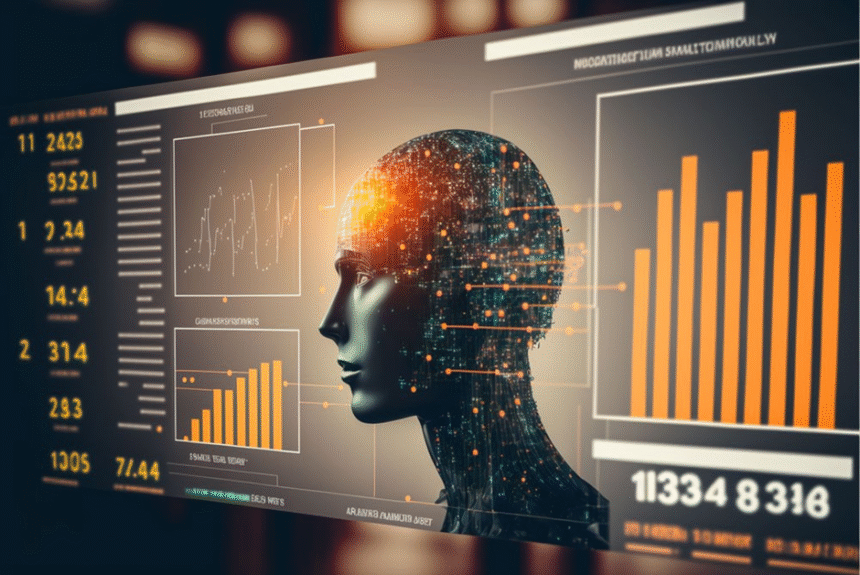By BiQ Intelligence Unit
…PRCA says that 67% of PR agencies now use AI in their work
Recently, when students at Standfordshire University protested against the administration’s decision to use artificial intelligence to develop and deliver lectures, the controversy ignited a broader conversation across industries: What happens when AI becomes not just a tool, but an invisible decision-maker? This builds a tension that practitioners must watch.
Few sectors feel this more sharply than the IMC world including but not limited to public relations, advertising, marketing, and branding, where creativity, storytelling, and human insight have traditionally been the engine of value.
Today, AI drives everything from campaign planning and predictive analytics to content generation, audience segmentation, crisis monitoring, and brand experiences. But with these advancements come significant risks: homogenised creativity, ethical breaches, job displacement, and a growing trust deficit among audiences who increasingly question what is authentic.
This analysis by the BrandiQ Intelligence Unit digs into how AI is reshaping IMC and probes into its breakthroughs, its failures, and the consequences practitioners can no longer ignore.
How AI Is Transforming PR: Automation Meets the Trust Crisis

Photo: Courtesy Jori WhitePR
Public relations, often seen as a uniquely human craft, is undergoing quiet but profound disruption. A report by the PRCA in 2024 found that 67% of PR agencies now use AI in media monitoring, crisis prediction, and content drafting. Tools like Cision, Meltwater, and Propel now deploy machine learning to: Scan millions of posts for crisis signals, predict journalist interest, draft press releases and pitches, manage media databases, and analyse sentiment trends in real time. A 2023 HubSpot survey showed that 52% of PR professionals use generative AI to draft first versions of press releases, cutting development time by up to 60%.
Now, let us look at a Case Study: The Samsung AI Press-Release Incident
In 2023, Samsung was criticised when journalists noticed multiple corporate statements carried near-identical structures and phrases, believed to have been generated using an AI assistant. The fallout included: Accusations of “soulless communication,” loss of perceived authenticity, heightened scrutiny of AI-generated corporate messaging. Trust is PR’s most precious currency. Truly, AI boosts efficiency, but risks eroding trust. Unfortunately, most PR practitioners are falling flat in the use and management of AI as cognitive and predictive LLM tool. According to Nkiruka Nnorom, a communications student, “AI can help you do your work faster, for instance, to write your press release or draft your documents, but you need to add your own voice. That is the only way your reader can trust your work. The moment someone discovers AI did everything for you and your voice is missing, there is a likelihood that the reader will dump your story. As much as people laud AI, they still want to experience the humanity in your work.”
In his own contribution, Nathaniel Udoh, a market researcher and media practitioner of over 20 years, believes that the extensive use of AI in a professional’s work declines authenticity and voice sameness of the messenger. “Over reliance on AI reduces the human nuance expected of practitioners especially PR and marketing communication professionals, who depend so much on trust for their work. Again, it raises some ethical concern regarding data privacy and AI hallucination which leads to misinterpretation.”
Advertising: Hyper-Targeting, Bias, and Algorithmic Manipulation

Photo: Courtesy Zapier
According to McKinsey’s 2024 Marketing AI Report, no field has adopted AI more aggressively than digital advertising. AI is said to be rewriting advertising in an incredible fashion. McKinsey claims that AI now powers more than 80% of programmatic ad buying, AI-optimized creative can increase conversion rates by 25–35%, and predictive modelling can reduce acquisition costs by up to 40%.
Platforms like Meta Advantage+ and Google Performance Max use AI to automatically design creatives, optimise bidding, select placements, target micro-audiences, and predict intent and behaviour
Now, let us check another Case Study: The Porsche AI Creative Backlash
In 2024, Porsche faced backlash after an AI-generated ad mistakenly removed a historical figure’s memorial from a background scene. The brand apologised, but the incident highlighted a larger issue: Cultural communication is one of the most sensitive aspects of communication. In this case AI-generated creative can unintentionally distort cultural symbols, and no one notices until the public reacts. What about the Algorithmic advertising problem where AI-driven ad systems have been found to: Reinforce stereotypes (e.g., showing high-paying jobs more to men), Exclude minority groups due to biased training data, and promote manipulative behavioural targeting
A 2023 investigation by The Markup revealed that AI-driven ad auctions disproportionately assigned “predatory loan” ads to low-income communities. Dr. Emmanuel Emeh, an advertising practitioner for over a decade, believes that AI driven advertising creates good opportunities as it promotes real-time optimisation, higher ROI, and multimodality with the use of video, images, text, etc. According to him, “However, there is a downside which creates emerging threats such as bias ingrained into targeting, loss of creative diversity, ethical concerns and regulatory scrutiny. There are also issues of Deepfake and synthetic influencers.”
Marketing: Predictive Everything – and the Death of Serendipity

Photo: Courtesy Pathmonk
How AI Is Reshaping Marketing
AI has created a world of hyper-personalised marketing where algorithms: Predict what customers will buy next, automate email flows and behavioural triggers, optimise SEO via automated content creation, build customer segments dynamically, analyse millions of consumer data points in seconds A Deloitte 2024 study revealed that AI-driven personalization increases revenue by an average of 38% for data-mature companies.
Case Study: Coca-Cola’s AI-Driven “Create Real Magic” Campaign
Coca-Cola partnered with OpenAI and Bain & Company to launch “Create Real Magic,” allowing consumers to design AI artwork for the brand. Results included: Over 100,000 submissions globally, increased brand engagement by 340%, thousands of organic social shares. The campaign showed AI’s power to democratize creativity and fuel global participation.
Meanwhile, some marketing professionals think that there is a dark side that needs to be watched and one of which is content pollution. For instance, some scholars argue that AI is flooding the internet with low-quality marketing content. A study by Originality AI estimates that 35% of all new online content in 2024 was AI-generated, contributing to lower engagement, content fatigue, declining search engine trust. There is also a worrying trend where brands are sounding more alike than ever. Some have pointed out the benefits of AI in marketing which includes predictive data insights, increase personalisation, faster content cycles and enhanced customer journey. But there is also the negative aspect which includes marketing homogenisation, loss of serendipity in discovery, spam-like saturation and privacy and surveillance concerns.
What IMC Professionals Must Do Now
In the face of the possible challenges posed to the IMC industry, Abiola Kabiru, a Lagos-based business and technology consultant, advises the professionals to re-evaluate their understanding and relationship with AI. “I think the IMC practitioners should reposition AI as a Co-Pilot, not the driver. They should use AI for first drafts, data analysis, pattern detection and brainstorming. They should maintain their responsibility in terms of determining the final messaging, ethical judgment, cultural sensitivity and creative direction.”
Speaking further he admonished them to build ethical AI frameworks. PR and advertising must adopt AI disclosure policies, bias audits and human-in-the-loop review systems. They should reinvest in human creativity. The most successful brands will be those that differentiate through human imagination, not algorithmic similarity.”
Conclusion: AI is Reshaping IMC – But the Industry Must Choose the Direction
Artificial intelligence has already rewritten the rules of PR, advertising, marketing, and branding. It has delivered unprecedented efficiency, predictive power, and creative opportunity. But it has also triggered a wave of challenges – ethical, cultural, creative, and professional.
Just as Standfordshire University students protested AI-taught lectures in defence of human learning, IMC practitioners must defend the human essence of communication: creativity, emotion, insight, trust.
AI is a powerful tool, but it is not a strategy. The future belongs to those who can integrate the machine without losing the human.






